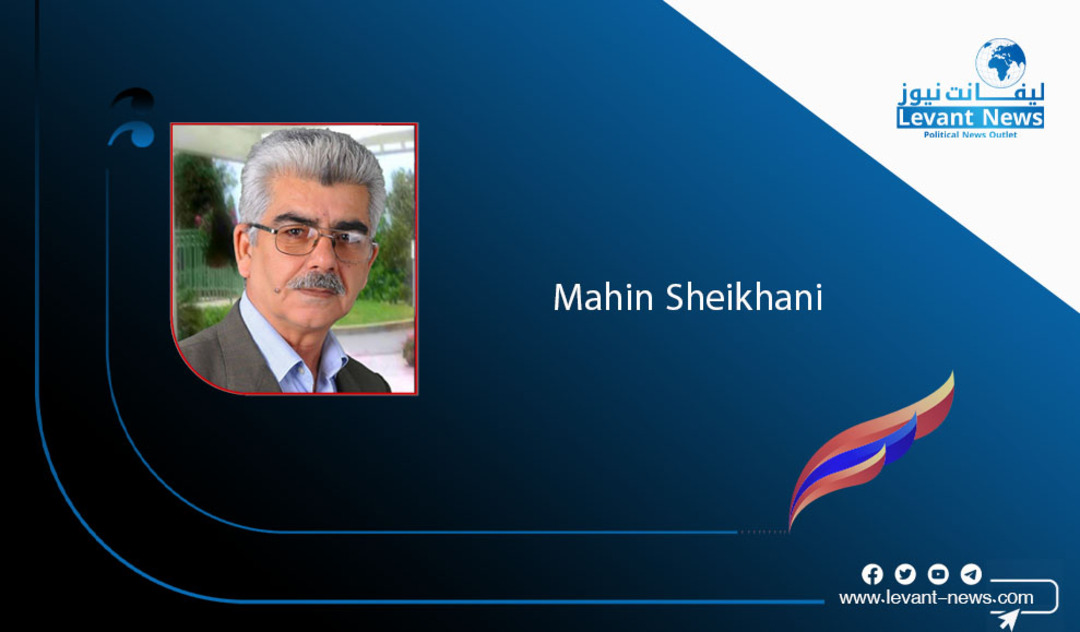-
Who Are the Enemies of the Kurds Today?

A Realistic Reflection in the Mirror of Pain and Challenge
In a poignant media interview, Lebanese journalist Éli Skhosi asked General Mazlum Abdi, the Commander-in-Chief of the Syrian Democratic Forces:
"Who is the enemy of the Kurds?"
The general smiled, hesitated briefly, then replied: "A very difficult question."
In fact, this hesitation was not due to weakness or confusion; rather, because the question cannot be answered with a simple yes or no. It requires a comprehensive map to understand the enemies of the Kurdish people—who have never been just external opponents but have often come from within as well.
Today, after more than a century of suffering and sacrifices, we have the right to ask openly:
Who are the enemies of the Kurds today?
1. The Four Regional States: Partners in Geography and Enemies of History
Turkey, Iran, Iraq, and Syria are the four states that shared the Kurdish body under the Sykes-Picot agreement and subsequent colonial arrangements.
Despite their significant differences, these countries agree on one thing: preventing any independent or even quasi-independent Kurdish entity.
Turkey fears any successful Kurdish experiment because it sees it as a threat to its national security and its mono-national identity.
Iran views the Kurds as a double threat: nationalist and sectarian, especially amid growing nationalist awareness in East Kurdistan.
Although Iraq officially recognizes the Kurdistan Region, signs of siege and marginalization recur with every political crisis.
Syria’s regime has not recognized Kurds as citizens for decades; today, they are dealt with as a de facto reality at best.
2. Internal Division: When Siblings Become Opponents
Nothing weakens a just cause more than its own people diverging.
Kurdish elites, from parties to influential figures, have repeatedly failed to build a unified political reference, even in the bleakest circumstances.
Factional conflicts,
the dominance of partisan interests,
subservience to opposing regional umbrellas—
all of these poisons have torn the Kurdish body apart from within.
And the enemy doesn’t need to work hard if the victim is destroying itself.
3. International Conspiracy and Silence
Despite the courage the Kurds showed in confronting ISIS and embracing democratic values and equality, the world did not respond with genuine recognition or support.
The Rojava experience has not received any genuine international political acknowledgment.
The Kurdish referendum in Iraq was met with sanctions instead of respect.
Massacres and displacements happen before the eyes of major powers without real intervention.
Kurds are used as a pawn, not a respected cause... at least for now.
4. Terrorism and Extremism: The Ugly Face They Faced Alone
No force in the region fought ISIS as fiercely as the Kurds did.
In Kobane, Raqqa, Sinjar, and Baghuz... they were at the forefront.
But they didn’t fight ISIS only— they faced an entire dark intellectual and ideological movement that saw Kurds as a threat to absolute power and rigid identity.
From nationalist extremism to religious fundamentalism, Kurds have always been targets of those intolerant of difference.
5. Authoritarianism and Single-Thought Mentality
The mindset of “nation-states” still refuses to recognize plurality and diversity.
For regimes, Kurds are just "second-class citizens," expected to pledge loyalty without recognition.
No language,
no culture,
no genuine political rights.
This structural tyranny is an enemy of the Kurds just as much as it is an enemy of all free peoples.
6. The Lost Time: The Silent Enemy
Amid all this, there is an enemy that does not declare its hostility but destroys from within: lost time.
When opportunities are wasted, mistakes are repeated, and failure is recycled under new titles, time becomes a lethal adversary.
Summary:
Kurds are not victims of just one entity—they are victims of multiple regimes and betrayals.
But the most dangerous enemies are those living inside Kurdish decision-making: hesitation, division, and subservience.
If the Kurdish people want to survive and realize their dream, they must face their enemies clearly, starting with acknowledgment, not just blame.
—Mahin Sheikhani
You May Also Like
Popular Posts
Caricature
opinion
Report
ads
Newsletter
Subscribe to our mailing list to get the new updates!




















